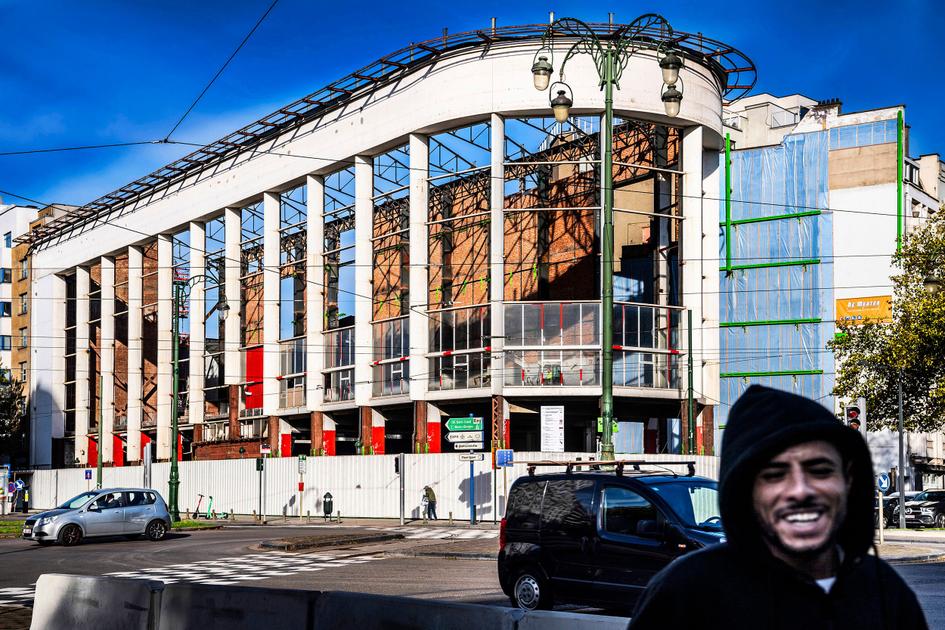The future Kanal-Centre Pompidou contemporary art center will cost Brussels about 38.88 million euros per year. Prime Minister Rudi Vervoort said this in Parliament on Monday. Although he admits that some costs have not yet been determined with certainty.
This summer, the Financial Inspectorate expressed concerns about the financial sustainability of the project. At that time, there was annual government spending of €44.3 million. The inspection was based on a renewable management agreement from 2024 to the end of 2028, which was approved by the government this summer.
Vervoort provided clarity in Parliament on Monday after questions from MR and N-VA. According to the Prime Minister, the actual cost is lower: on average about 38,887,000 euros per year. Vervoort shared the various support channels from the latest management agreement with Parliament on Monday. Most of it goes to the Kanal Foundation, which takes care of the renovation, management and maintenance of the old Citroën garage. The money will also go to the operating costs of the business and to the Pompidou Centre.
19 million for exploitation
Canal will receive annual support from Brussels for the next five years, between 2024 and 2028, to cover its operations. In a “normal” year, when the museum is fully open, this support amounts to 19 million euros. This will be the case for the first time in 2026. After that, support will follow indexation.
In addition, additional operating resources will be provided in the run-up to the opening in 2025. This relates to a one-off support of €2 million in 2025 and again in 2026.
“In other museums, operating costs are often outside the scope of the management contract,” Vervoort stressed. BOZAR, for example, is maintained by a buildings agency, making these costs “less visible” in support flows, says Vervoort.
He compared Canal not only to Pozar, but also to institutions abroad: “The budget of the Tate Modern government is 56.8 million euros. The Center Pompidou receives 84.2 million euros annually.” He believes that “with 19 million euros annually, Canal is considered a reasonable player on the European scene.”
The museum also intends to generate its own income through ticket sales, a shop, a café, and (special) events, but also through donations and sponsors. This is supposed to generate about 15.5 million annually from 2026. “We have remained reasonable in this regard,” Vervoort said. “We want the canal to remain a democratic museum, accessible to all target groups.”
VAT is not clear
The total estimated cost of $38.88 million per year also includes amortization of previously incurred costs, such as work on the entire site. A total of 172 million euros has been allocated for this purpose. “It does not appear that this budget has been exceeded at this time,” Vervoort said. An additional €13 million in regional funds will be added to transform the building into a museum.
However, some costs remain unclear. Vervoort admitted that Kanal’s IT will be arranged via the regional IT platform Paradigm. “That still has to be calculated,” he said. The VAT on all subsidies remains unknown. “The Kanal Foundation will be able to deduct VAT on a whole range of expenses, but the percentage is still under discussion with the Federal VAT Administration,” says Vervoort.
Transparency
Vervoort concluded by attacking the Financial Inspectorate, which, he said, was understaffed, gave too late advice and was involved in too much “politics”. It was not clear on Monday where the difference came from with the amounts mentioned by the inspectorate this summer. Opposition parties N-VA and MR remained wary in parliament and asked to see the full management agreement. “This is a prestigious project at taxpayer expense, which is unprecedented in times of tight budgets,” said Mathias Vanden Borre of the N-VA. According to the opposition, among other things, the wage costs of the Canal Foundation are not sufficiently known.
According to Rudi Vervoort, this is not true. He stressed that “the channel’s management does not receive more wages than anywhere else.” “The reimbursements are transparent and have been approved by the Financial Inspectorate. Apart from inflation, no additional costs have arisen during the work. According to Vervoort, the cost of the canal amounts to only 0.5% of Brussels’ total expenditures. “While it will have a real impact on “Our city.”

“Communicator. Avid web fanatic. Alcohol practitioner. Award-winning organizer. Bacon advocate.”











More Stories
Photo of Chuck Norris (84) almost unrecognizable: He’s getting old now
Actors Intentionally Cut From Sci-Fi Epic ‘Megalopolis’: ‘Not a Woke Hollywood Movie’
Caroline Rego: “The golden rule is: for every glass of alcohol, one glass of water to replace it!”